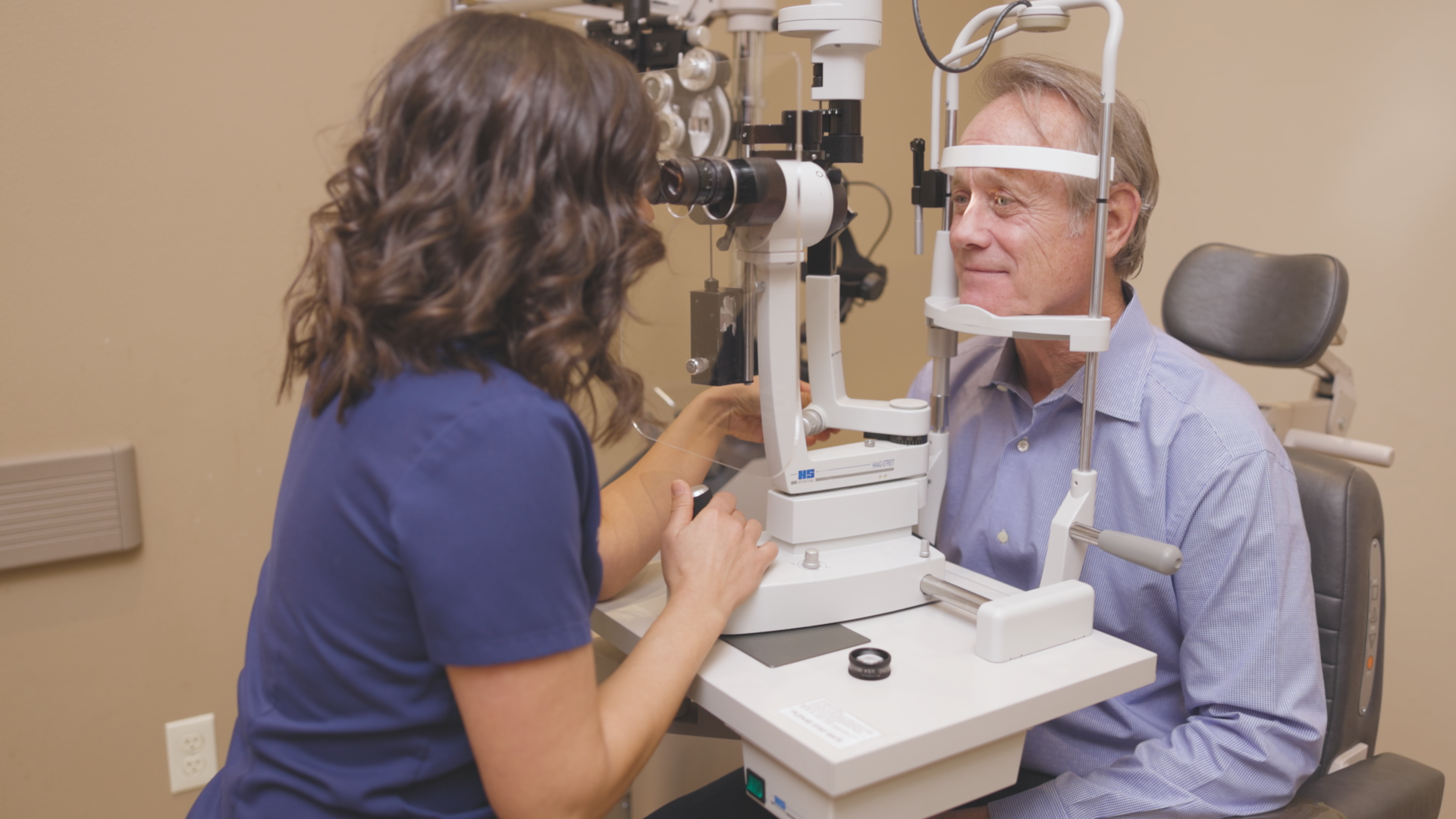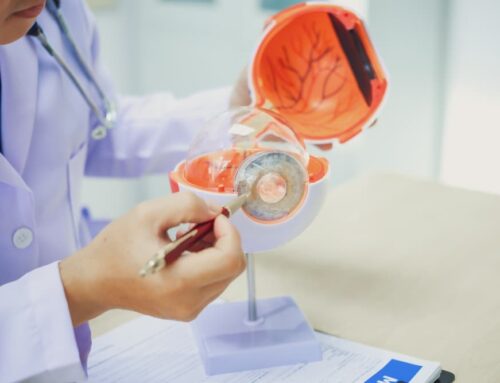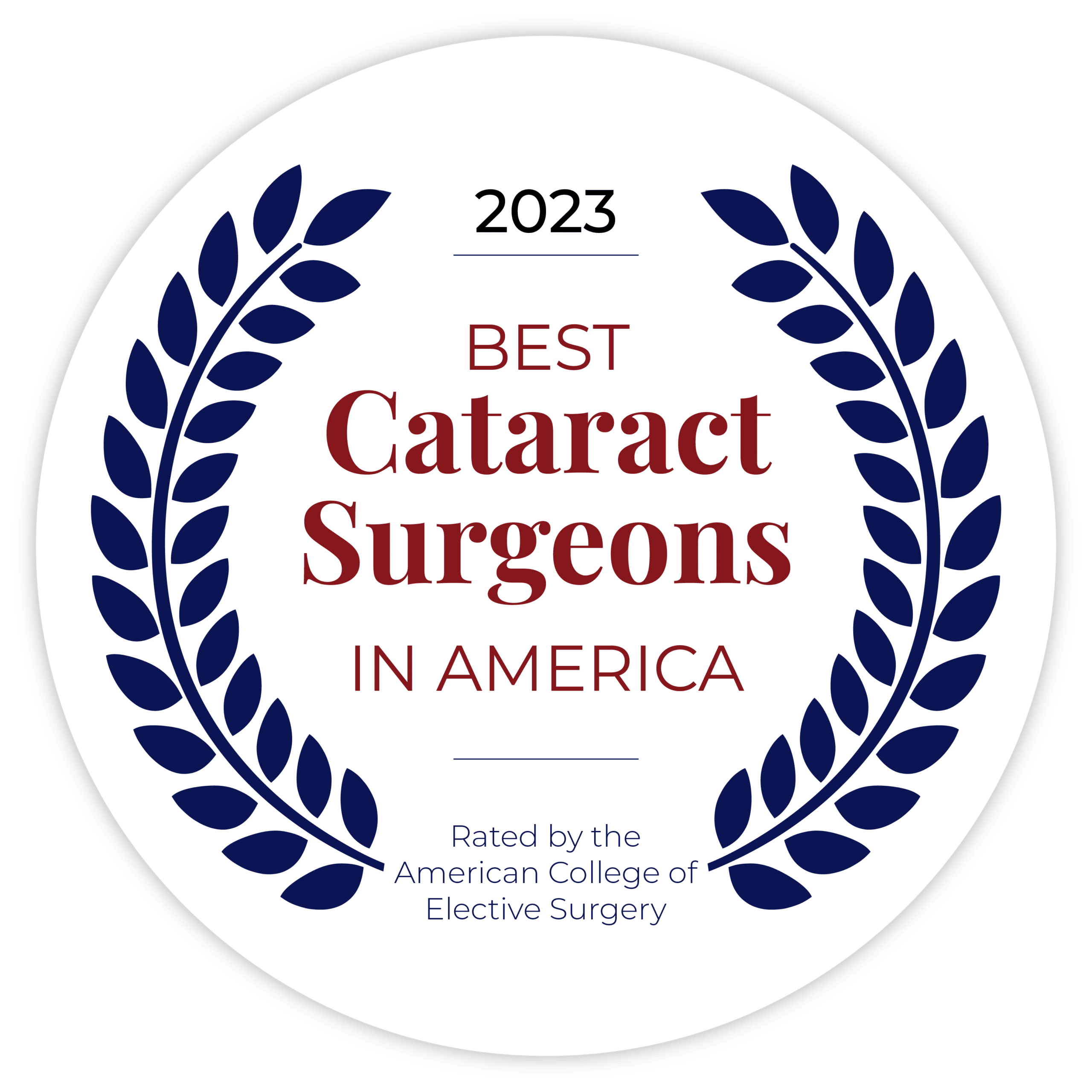What kind of doctor would you go to after a heart attack? You probably know the answer is a Cardiologist. If you were going to have a baby, you know the doctor to see is an OB/GYN. These are commonly known medical specialists.
But what about if you’re having trouble with your eyes? There are actually three different types of doctors dedicated to eye care: optometrist, ophthalmologist, and optician. However, what is the difference?
While all three of these medical professionals are different, keep in mind that they often work together and that a team approach can be the best option for eye care.
Ophthalmologist: Medical and Surgical Eye Care
These doctors go to medical school, and then complete a one-year internship and a residency of three years. This is sometimes followed by a one- or two-year fellowship in a sub-specialty like retina or glaucoma. They offer complete eye care services including:
- Surgical eye care, such as laser surgery for cataracts and MIGS procedures for glaucoma
- Medical eye care for conditions such as glaucoma, dry eye and macular degeneration
- Refractive Surgical vision correction procedures, such as LASIK, PRK and others
- Diagnosis and treatment of eye conditions related to other diseases such as diabetes
Our Eye Care Professionals team of ophthalmologists includes owner and lead ophthalmologist, Dr. Matthew Mills, MD, and Dr. Thomas (Tam) Conklin, MD, who has been practicing in the Reno area for more than 30 years.
Optometrist (OD): Vision Care and Eye Care Services
Optometrists take care of primary health care for the eye. After college, they spend four years in a professional program and earned a Doctor of Optometry degree. Some optometrists get additional clinical training or complete a specialty fellowship after optometry school. These doctors focus on routine eye exams as well as vision care and monitoring and treatment of various eye conditions. They typically:
- Perform comprehensive eye exams and vision tests
- Prescribe and fit eyeglasses and contact lenses
- Monitor medically related eye conditions related to diseases like diabetes
- Manage and treat conditions, like glaucoma
- Provide low-vision aids and vision therapy
Our Optometrists and Ophthalmologists work together to take care of you and see that you get the care you need. Our team includes clinical optometrist, Dr. Leyla Mirbaha, who has an emphasis in monitoring, managing, and treating ocular diseases such as glaucoma, macular degeneration, and diabetes.
Optician: Eyeglasses and Contact Lenses
While Opticians aren’t technically eye doctors and can’t perform eye exams, they are skilled and important providers who assist patients in need of proper glasses or in some cases contact lenses. They earn a one- or two-year degree, certificate, or diploma. They typically:
- Fill the prescription your eye doctor gives you
- Check lens prescriptions
- Provide, adjust, and repair glasses, frames, and contact lenses
- Take facial measurements
- Help decide which type of lenses and frames will work best
- Order and check products, including contacts and eyeglass lenses
Conclusion
Whether you need cataract surgery, are interested in learning more about our cosmetic eye procedures, or would like to have LASIK eye surgery reduce your need for glasses and improve your quality of life, you’re looking for doctors at Eye Care Professionals of Reno.
We are Northern Nevada’s leaders in experienced, state-of-the-art medical and surgical care for the eyes. There’s a reason we are considered the area’s top eye care provider. We have vast leading-edge experience and a reputation for unsurpassed capabilities and outstanding treatment outcomes.
If you’d like to speak with our team and book an appointment, please call (775) 322-1000. You can also book an eye appointment online. It’s just one more way we show that helping you achieve and preserve your best possible vision is our highest priority!











